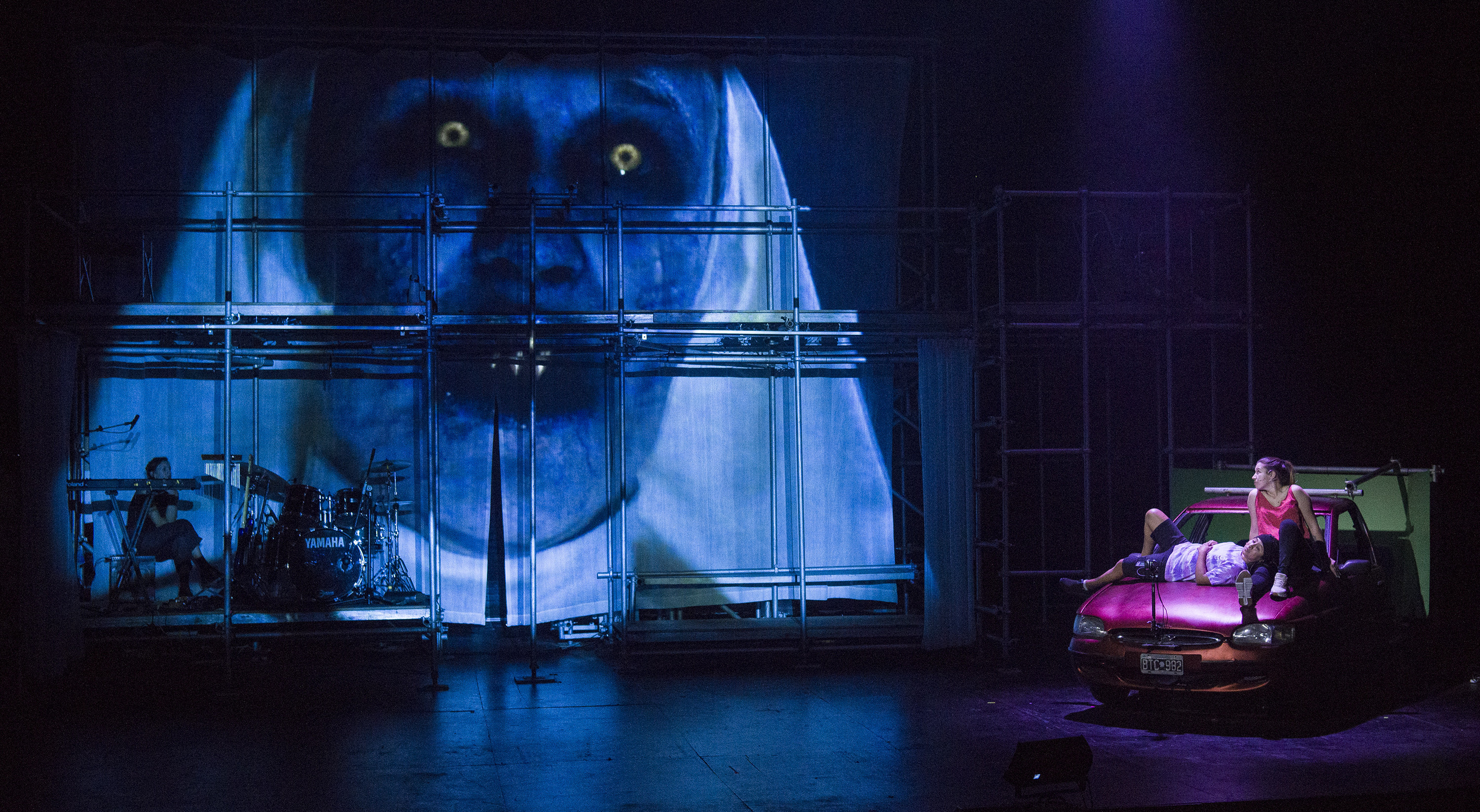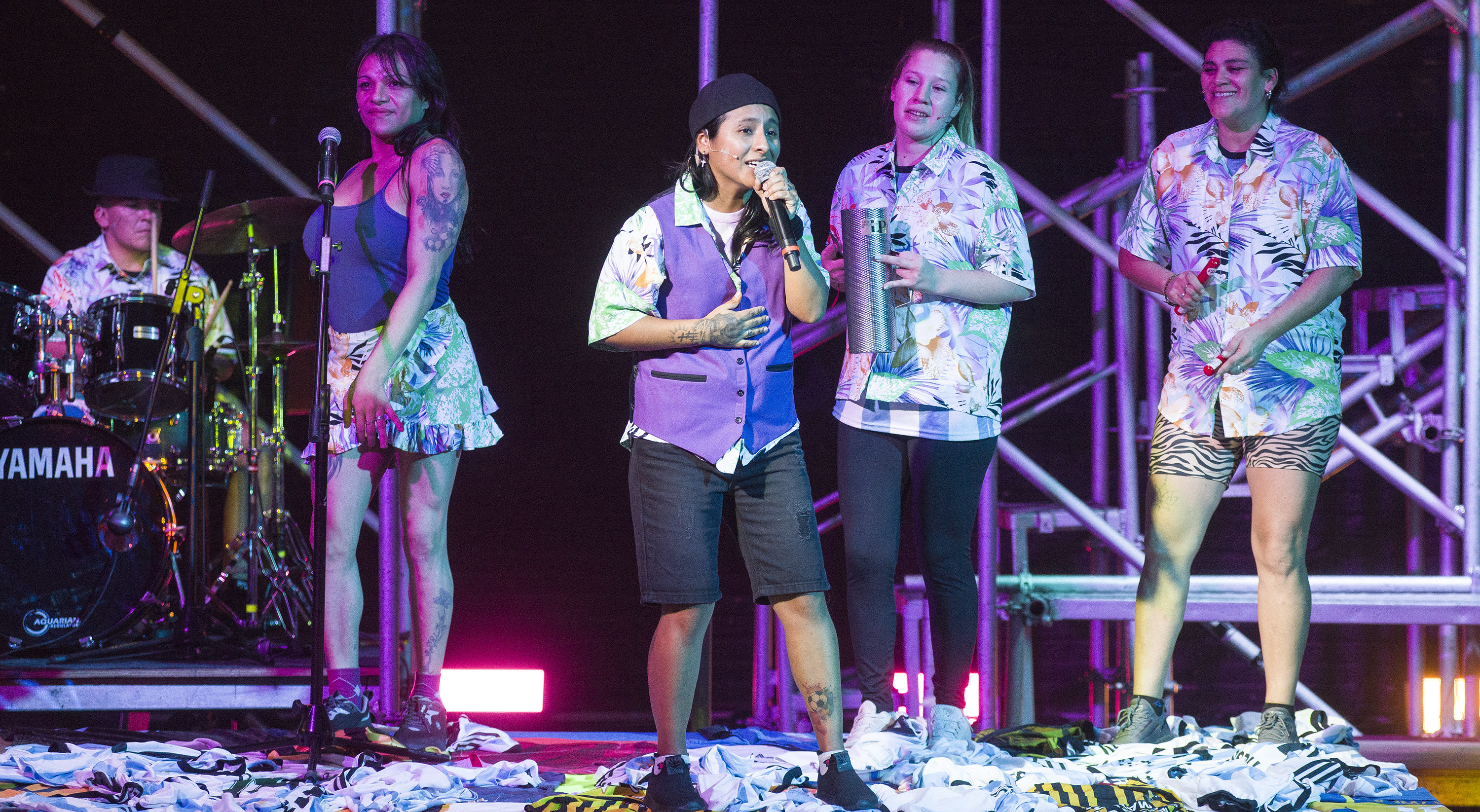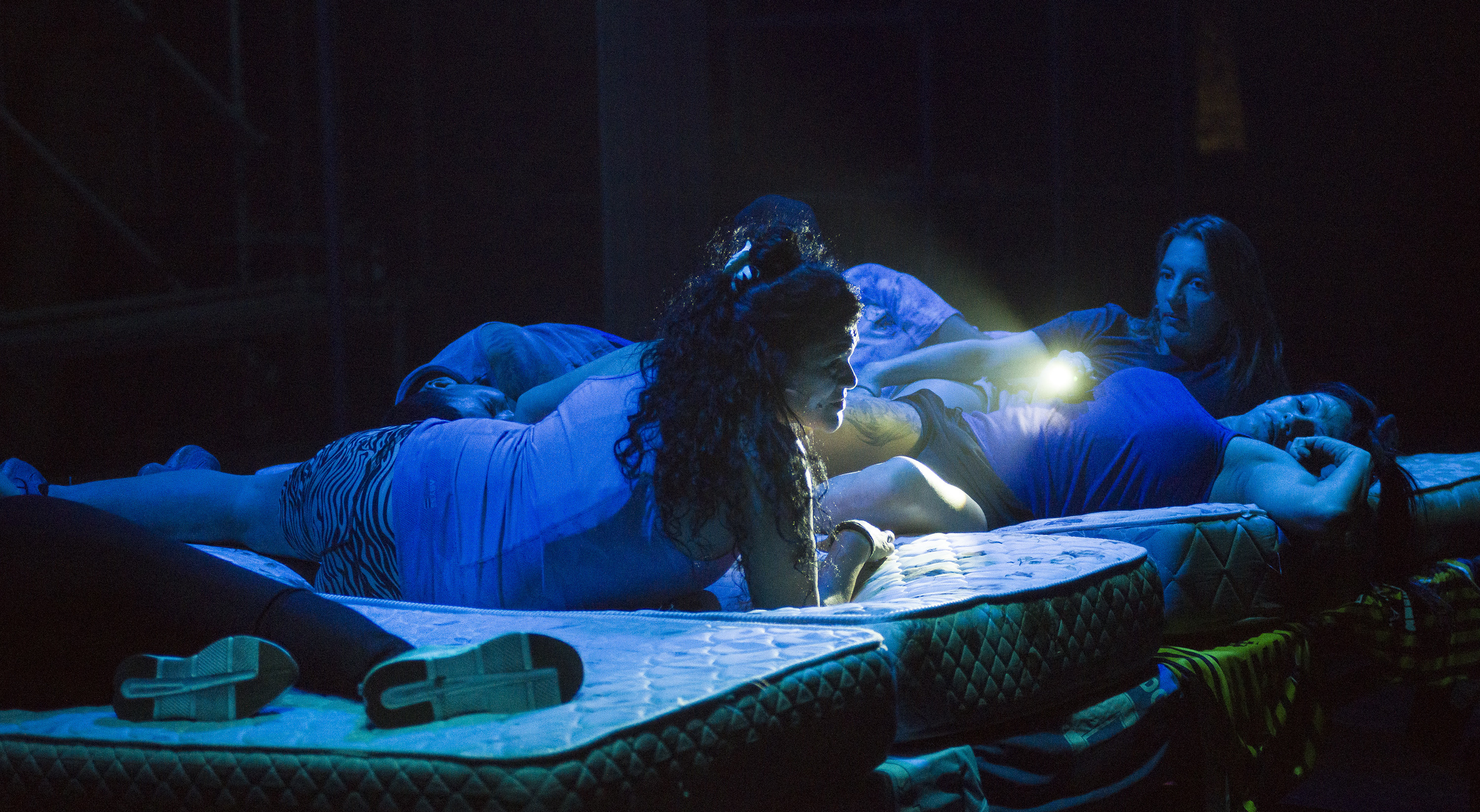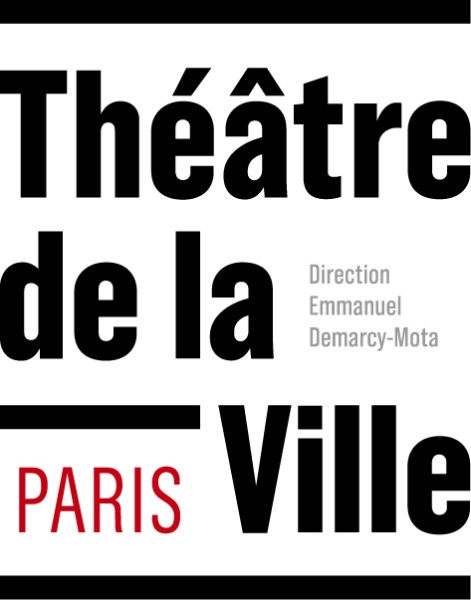Lola Arias
Los días afuera
octoberoct 3 – 5
novembernov 6 – 7
Conceived, written and directed by Lola Arias. With Yoseli Arias, Natal Delfino (replacing Ignacio Rodriguez), Estefania Hardcastle, Noelia Perez, Paulita Asturayme, Carla Canteros. Live musician Inés Copertino. Dramaturgy Bibiana Mendes. Translation and artistic collaboration Alan Pauls. Set design Mariana Tirantte. Choreography Andrea Servera. Music Ulises Conti, Inés Copertino. Lighting design and management, general management David Seldes. Technical direction team Facundo David, Matías Pagliocca. Video creation and control Martin Borini. Sound Manager Ernesto Fara. Stage Manager Roberto Baldinelli, Andrés Perez Dwyer, Manuel Ordenavia. Costumes Andy Piffer. Assistant Director Pablo Arias Garcia. Production and Touring Editors Emmanuelle Ossena & Lison Bellanger | EPOC productions. Touring director Lucila Piffer. Production, administration Lola Arias Company Mara Martinez. Production, administration in Argentina Luz Algranti & Sofia Medici. Technical production Ezequiel Paredes. Assistant directors in Argentina Julián Castro, Florencia Galano. Production assistant Juan Manuel Zuluaga Bolivar. Assistant Set Designer Lara Stilstein. Assistant Stage Manager Facundo David. Casting Talata Rodriguez (GEMA Films). Legal advisor Felix Helou. Social work Soledad Ballesteros, Matias Coria. Set construction Théâtre National Wallonie Bruxelles.
Production Lola Arias company
Associated production Gema Films
Coproduction Complejo Teatral Buenos Aires ; Festival d’Avignon ; Festival d’Automne à Paris ; Théâtre de la Ville-Paris ; Comédie de Genève ; Théâtre National Wallo-nie-Bruxelles ; Festival Tangente St Pölten ; Kaserne Basel ; Maxim Gorki Theater Berlin ; Nationaltheatret (Oslo) ; Scène nationale du Sud-Aquitain ; Le Parvis-scène nationale de Tarbes ; La rose des vents – Scène nationale Lille Métropole Villeneuve-d’Ascq ; NEXT Festival ; Théâtre National de Strasbourg ; Internationales Sommerfestival Kampnagel (Hambourg) ; tnba – Théâtre national de Bordeaux en Aquitaine ; Theater Spektakel Zürich ; Künstlerhaus Mousonturm (Francfort) ; Brighton Festival ; Centre dramatique national Orléans – Centre-Val de Loire
With the support of Fonds Transfabrik – Fonds franco-allemand pour le spectacle vivant
The Théâtre de la Ville-Paris and the Festival d'Automne à Paris are co-producers of this show and are presenting it as a co-realisation.
Lola Arias: Prison, before and after
Read it on Mouvement
Interview in the summer Midis.
Listen on France Culture
Lola Arias in the Midis de culture
Listen on France Culture
At the crossroads between musical and documentary, Lola Arias brings us a choral composition in which six female former inmates talk about their lives during and after incarceration. Their six intertwining destinies raise questions about the various forms of violence present in contemporary society, whilst exploring the margins of fiction and reality at the same time.
Prior to writing and directing this show, Lola Arias spent time at the Ezeiza women's prison, situated in the province of Buenos Aires, and set up theatre workshops there. It led to the making of a film, Reas (Prisoners), released in February 2024, in which fourteen prisoners – cis-gender women, and transgender men and women – talk about their existences in a prison environment. The same year, she brought together six of the film's protagonists in a play in which each of them plays their own role after coming out of prison, and the difficulties they face in trying to reintegrate into society. During their time in prison, music and dance, particularly rock and voguing, was a form of resistance and survival. Turning this place of confinement into a place of creation, Lola Arias brings us a radiant piece of musical theatre. It draws upon interviews and improvisation work carried out with the performers. Through dialogue, exchange and confrontation, it reinvents a form of writing which is in perpetual renewal.
In the same place



